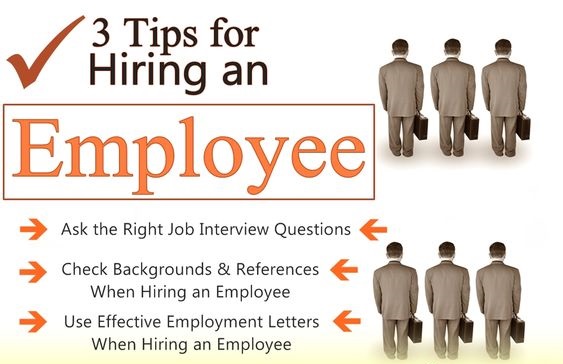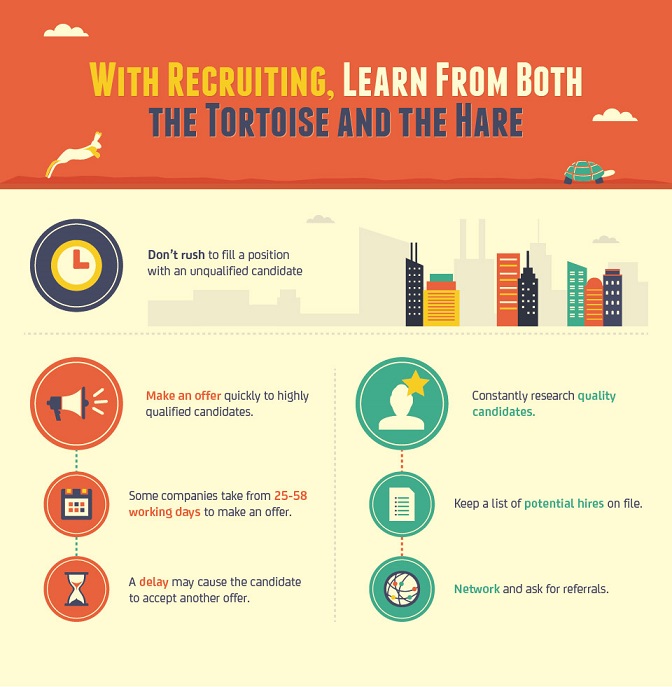
Hiring wrong candidates can cost the company very dearly in the long run as the impact left-back will be a setback with the existing workforce.
Hiring the right people takes time, the right questions and a healthy dose of curiosity. What do you think is the most important factor when building your team? For us, it’s personality.
Richard Branson
Hiring the perfect candidate is not easier anymore, especially in today’s hyper-competitive, fast-paced recruiting environment. Sometimes you may stumble upon great resumes, interview them well and seemingly ticked every box. But, things get changed when they get inside the court. They may fail to hit the target, cause disruption in the team, and not deliver the expected result in any area.
How did this happen? You might be wondering right now.
Recruiters have a lot at stake whenever they fill an open job position to hire better candidates and improve the recruiting process. Because hiring bad employees can hurt a business in many ways. So, you must recognise and correct errors or bad habits that currently impede your hiring process.
Are you ready to hire better candidates and improve your recruiting process? Then, keep reading. Today’s blog post is for you.
A company should limit its growth based on its ability to attract enough of the right people.
Jim Collins

Mistakes you should strictly avoid Hiring wrong candidates on your next recruitment process
- Not defining the Job Description clearly
One of the top reasons for a bad hire is failing to make a clearly defined job description with the skills and experience required. With poor skills match and unclear performance objectives, you will not be able to find the right person who possesses those talent necessary for the job. So, before delving into the recruitment process, make it crystal clear what kind of candidate you need for the role and what the job position entails. It helps to ride you in the right direction.
- Not overvaluing industry experience
Experience is a good sign of a qualified candidate. But never consider it a “make or break” factor when recruiting candidates. If you disqualify people who don’t meet a specific experience threshold, you may be overlooking for some high-quality candidates. But I must say it will be one of the biggest mistakes you will make.
For example: If you get two candidates to apply for the same position of your company. One person with four years of relevant experience and another person has only one year of experience, but has better skills and fits your candidate persona more accurately. Who would make the better hire? The answer is easy, the second one. So, never go for the experience, but quality.
“Hire an attitude, not just experience and qualification.”
Greg Savage
- Not misleading the candidate about the job role
Never oversell a job role when you encounter with a high-quality candidate. But, no matter how much you want to win the candidate, overselling the position during the interview process is a big mistake. Once he joins the job role, he will quickly realize that the job isn’t what they expected. Before you know it, they will leave for a better opportunity, and you’re back where you started, with a vacant job to fill. So, you should avoid this situation.
- Not targeting passive candidates
Passive candidates are those who got rejected in any of your interview sessions. Even though they had potential, they may not have been the right fit for a particular job role. They have already expressed interest in working with your company and depending on their skills; they may be an excellent fit for another job role. Discarding candidates who are qualified and interested, but not competent at this particular time is a big recruitment mistake.
You can ask qualified but rejected candidates to stay in touch with you for future opportunities. You can do this by managing a list manually or adding them to talent pools where you can easily engage them.
- Not taking enough time to hire
It is one of the biggest, and perhaps the inevitable mistakes companies make. Recruitments made in a hurry to close the position will end up with Hiring wrong candidates. So, strictly avoid hiring on tight deadlines and take adequate time to assess candidates.
- Relying on the standardised hiring process
Candidates today are rarely looking for a job in the local newspaper paper for a job. So, casting a wider net gives you a broader applicant pool. And more options are better than fewer. So, opening the door to a wider variety of candidates can also help you diversify your staff with a broader range of skill-set, experience, and points of view. You can drive more candidates through your Facebook page, Twitter and LinkedIn account at the right time.
The hiring process by a recruitment consultancy is a tricky task these days. It may take a while before you find the right fit, but once you do, you will be grateful that you worked so hard to find them. Hiring the right people is ultimately the best thing you can do for your company as an efficient workforce are the backbone of the company.
After hiring your new employees, it’s also equally important to make sure you train them well and assist them in adjusting to the culture and pace of the workplace. Cultivating great employee-boss relationships is a sure-fire way to improve your company’s performance and motivate your employees to accomplish to the best of their potential.
So, good luck with your hiring endeavours and may you find the perfect piece to your company’s puzzle!

In technology, it’s about people. Getting the best people, retaining them, nurturing a creative environment, and helping to find a way to innovate.
Marissa Mayer





